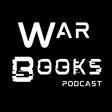
World War II – D-Day, an Oral History – Garrett Graff
Ep 057 – Nonfiction. New York Times Bestselling Author Garrett M. Graff discusses his book, “When the Sea Came Alive: An Oral History of D-Day.”
‘June 6, 1944—known to us all as D-Day—is one of history’s greatest and most unbelievable military triumphs. The surprise sunrise landing of more than 150,000 Allied troops on the beaches of occupied northern France is one of the most consequential days of the 20th century. Now, Pulitzer Prize finalist Garrett M. Graff, historian and author of The Only Plane in the Sky and Watergate, brings them all together in a one-of-a-kind, bestselling oral history that explores this seminal event in vivid, heart-pounding detail.
The story begins in the opening months of the 1940s, as the Germany army tightens its grip across Europe, seizing control of entire nations. The United States, who has resolved to remain neutral, is forced to enter the conflict after an unexpected attack by the Japanese at Pearl Harbor. For the second time in fifty years, the world is at war, with the stakes higher than they’ve ever been before. Then in 1943, Allied leaders Franklin D. Roosevelt and Winston Churchill meet in Casablanca to discuss a new plan for victory: a coordinated invasion of occupied France, led by General Dwight D. Eisenhower. Failure is not an option. Over the next eighteen months, the large-scale action is organized, mobilizing soldiers across Europe by land, sea, and sky. And when the day comes, it is unlike anything the world has ever seen.
These moments and more are seen in real time. A visceral, page-turning drama told through the eyes of those who experienced them—from soldiers, nurses, pilots, children, neighbors, sailors, politicians, volunteers, photographers, reporters and so many more, When the Sea Came Alive “is the sort of book that is smart, inspiring, and powerful—and adds so much to our knowledge of what that day was like and its historic importance forever” (Chris Bohjalian)—an unforgettable, fitting tribute to the men and women of the Greatest Generation.’
Subscribe to the War Books podcast here:
YouTube: https://www.youtube.com/@warbookspodcast
Apple: https://apple.co/3FP4ULb
Spotify: https://spoti.fi/3kP9scZ
Follow the show here:
Twitter: https://twitter.com/warbookspodcast
Facebook: https://www.facebook.com/warbookspodcast
Instagram: https://www.instagram.com/warbookspodcast/

